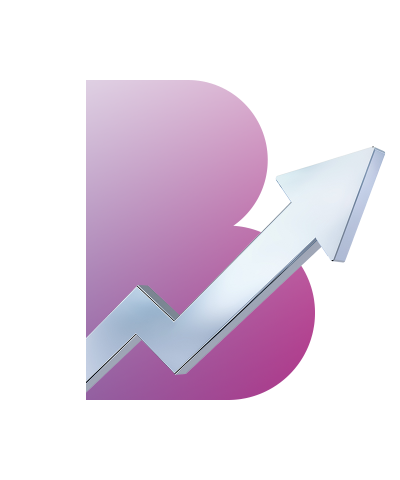How financial service providers can protect their livelihood with end-to-end digitization


Costs, Cost pressure and financial volatility are the most pressing issues for banks together with regulation and technology new technological opportunities based on digitization
Fast forwarding through centuries of ever accelerating technological advances, the present day impact of digital technology is as much a modern day staple as its two greatest challenges – speed and complexity. Opportunities abound.
In the 1660s, technological advances caused many watchmakers to design counting machines based on Blaise Pascal's 1642 original design. His initial pieces didn't work well and were consigned to fashionable parlors as mere conversation pieces. However, a hitherto unrelated yet highly skilled industry grasped the concept of an outstanding idea, re-tooled its capabilities and simply ran with it. The leap from mechanical counting device to digitization of financial services appears huge, yet rings all too familiar to our ears today.
With the help of hindsight, we may immediately recognize the similarities in modern day digital markets, say for example Fintech entrepreneurs sprinting into territory dominated by giant, traditional (read: less nimble) players in banking and insurance. The challenge lies in translating these dynamics to present day realities faced by financial services institutions. Clearly, the most far reaching of these realities is the vast potential of end-to-end digitization in financial services.
Banks and insurers have some of the greatest digitization potential of all, given that they have been collecting, processing and connecting data on clients and transactions since the beginning of times. Yet many financial service providers are having trouble digitizing their business processes consistently and thoroughly from end to end. Customers are still confronted with paper application forms, manual processes and procedures and lengthy waiting times. Often their needs are not addressed at an early stage.
And the consequence? New, technology-driven providers (online platforms, P2P lending, FinTechs) are cornering certain segments of the market with customer-friendly digital services, while the established financial service providers are falling behind the competition or even being forced out of the market. The numbers are speaking for themselves: Finance brokers' share of the market for mortgage lending has more than doubled since 2010, rising from 17 to 35 percent. This is one of the findings of our study, "Plan D – Digital all the way", which presents the steps the established financial service providers need to take in order to successfully achieve digital transformation.
It may now seem quaint that the actual 'mash-up' of clock and counting machine took another 300 years or so to manifest itself in the first calculator wristwatch brought to market in the 1970s. Since then, technological convergence has become so ubiquitous and seamless in so many areas, we often hardly notice. Nowadays, a lack of convergence is far more noticeable – expectations are high.
The majority thinks "online first"
Customer expectations, for instance vis-a-vis retails banks can be clearly mapped – as we did in our extensive survey in cooperation with VISA Europe.
Today’s financial customers are increasingly cost-sensitive, yet unwilling to compromise on quality. They like the flexibility and the speed of the Internet, especially when they're dealing with simple financial products. In fact, the majority of study participants already think "online first" when it comes to making bank transfers and checking balances: 63% of them do their everyday banking online. The figure is as high as 96% among the digital-savvy group.Overall, the appetite for channel switching (offline/online) during the purchase of a banking product is low. Multi-channel operators need to understand these implications when developing future services or streamlining current initiatives and projects.
Meet clunky unease
It is clear that less than seamless processes no longer sit well with customers. One of our recent comparative surveys found that "…most European retail banks have completed the first wave of digitization, mainly focusing on client-facing applications to initialize basic transactions online but still struggle to close the loop for complex transactions, contrary to certain direct banks."
Investments are high, yet expectations struggle to keep step: only 16% of European banks expect digital channels to contribute more than 10% to total revenues in 2017. We have identified several high-impact priorities for retail banks in order to accelerate their transformation, and to enhance and leverage their digital capabilities.
Customers have a shared voice
Due to 21st century technologies such as social media, customers now have a shared voice and the ability to communicate and connect like never before. In our Point of View piece we explored the emergence of this 'sharing economy' in the context of traditional financial services and draw on latest developments found in the Belgian market.
Although the Financial Services industry provides more natural barriers to large-scale adoption of Peer2Peer (P2P) initiatives compared to other industries, in the long term we believe in a two-tiered landscape. By initiating their own P2P initiatives aimed at enriching their existing product offer, traditional players can create a win-win for both sides.
All eyes on Fintech
Today, it seems, you can pick a sector, any sector, add '–tech' and, hey presto, a novel business model seems inevitable. This little suffix is not only injecting new ideas into products and services, it also births entirely new sub-sectors, while giving mature industries and services, such as financial services, quite literally a run for their money. At present, none appears to be more omnipresent and potentially far reaching than Fin+tech. Why? The simple answer is, of course, money. Money, like air, has ubiquity built in as standard. Money is data.In a recent study taking the temperature of the developing Swiss FinTech ecosystem, opportunities are easily identified, while sentiments are divided on the 'when and how' of this market.
Far clearer is the imperative for a leading financial center such as Switzerland to position itself at the top table in this dynamic field – the changing needs (talent, skills, business and funding environment etc) of FinTech entrepreneurs must be understood and nurtured. There is no doubt that FinTech will accelerate changes in market structures and business models that have long been anticipated.
Uber-exemplary for speed and complexity
Next, take Bitcoin and Blockchain, so uber-exemplary for speed and complexity in financial markets. For some, Bitcoins have already lost their lustre - the novelty aspect only lasted this long. The new kid on the block is the underlying technology – commonly bundled into the term Blockchain.
Blockchain's underlying sophisticated agility i.e. its distributed public ledger technology, has applications outside of core financial markets and is about to cross over into legal, environmental, and biological realities; governments and their regulatory bodies are scrambling – often struggling – to map and harness its potential capabilities for tax collecting and digital services such as e-voting. In a case of going full circle, Estonia's e-residency platform and NASDAQ will trial the application of distributed public ledger technology to be used in shareholder proxy voting processes later this year. Capital markets infrastructure and its interfaces are being re-bundled and re-invented in one go. Mind you, only robust, forward thinking information societies need apply.
In this way, digitization is set to blend with other high-resolution technologies to challenge every assumption about what’s possible in the economy and in human society. Again, opportunities abound.








